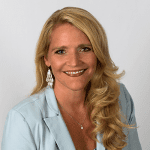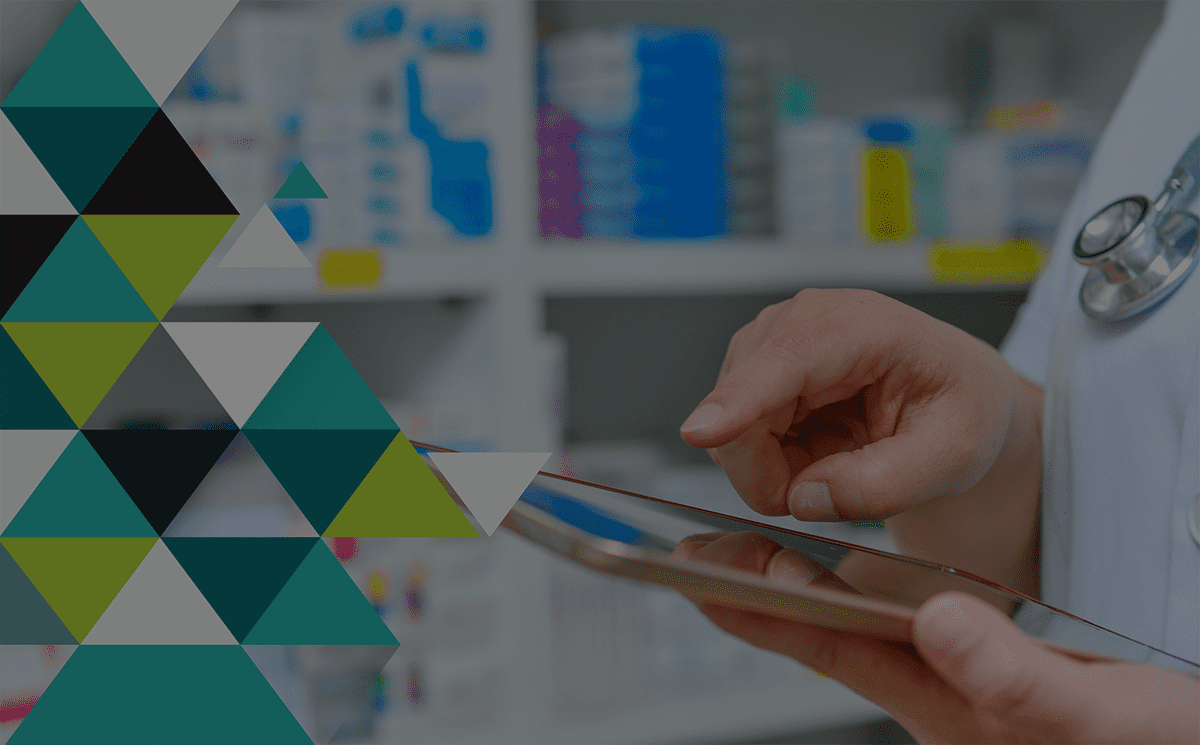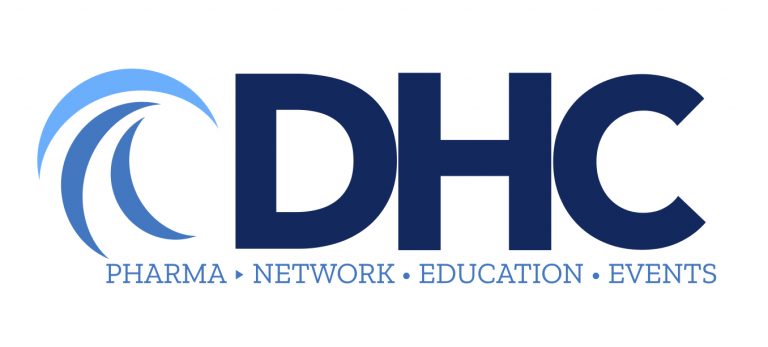Interview
What’s Happening and What’s Next in Pharma
A Thought Leader Panel Discussion

Wendy Blackburn


Overview
What’s Next in Pharma
Mark Bard, with DHC Group, Wendy Blackburn, with Intouch Group, and Dan Seewald, with Deliberate Innovation, came together to discuss what’s ahead in 2021 for pharma organizations, brands, and individuals. The basis of this conversation is the new DHC Group and Intouch Group whitepaper, The Now and the Next.
The changes fueled by 2020 have already motivated companies to alter their strategies and it’s clear some of those change will stick – and evolve – and some may drop off as things revert to the new normal. This in-depth conversation will be made available in two parts.
the now and the next, PART ONE:
Interview Focus
- What has changed forever and what is a temporary setback – or change to strategy
- What’s ahead for the patient experience based on what pharma, physicians and patients have learned from 2020
- The future of metrics with physicians and non-personal promotion as well as what events, meetings, and education will look like in the future of in-person, online, and hybrid networking

Mark Bard
Co-Founder
DHC Group
“What has changed forever, and what do you see going back to this idea of normal or some version of normal in the future?”

Dan Seewald
Founder & CEO
Deliberate Innovation
“One of the things that you will see not be precisely the same is how we collaborate. Right now is living proof of it. The lid is off of virtual collaboration. There were a lot of senior executives and also other folks in organizations that were not quite convinced that they could do it, and then they had no choice, so they had to do it, whether using Miro or MURAL, using Zoom, using Teams, and the whole countless litany of other technologies. It’s changed the way inside organizations how we engage, but furthermore, it’s also changed the way we interact with our peers and with our customers. Doctors have gotten used to this. Nurse practitioners, all advanced practitioners have gotten more or less accustomed to it from their personal life and their professional life, so the Pandora’s box is open, and there’s no getting it back in.”
“The peer-to-peer selling model has shifted. Selling will never be quite the same. I’ve seen this now across multiple industries, not just pharma. If we can’t take people out to dinner anymore, we can’t have that face to face, how do we build trust, credibility, which is also the cornerstone of selling medicines or building reputation and trust with our customers? How do you do it? They’ve had to reinvent how they do things, and they’re finding it’s faster, it’s more efficient, and it’s actually forced them to have a lot more ingenuity.
A lot on the peer-to-peer, human interaction front has dramatically changed, and you’re not stuffing it back in. Yet there are some things that I think will bounce back to a certain extent. I think human nature is going to override. People will want to be back with one another. How we connect and work together in person Conferences may be reshaped and look a little bit different, conferences and events aren’t going to go away, so don’t take it out of your budget quite yet.”

Mark Bard
Co-Founder
DHC Group
“Wendy, when you look and you get asked the question what changes, what doesn’t change, what do you put in those buckets?”

Wendy Blackburn
EVP, Marketing & Communications
Intouch Group
“Sales reps have less access, patients are using telehealth more, those are trends that were already in motion before we ever heard the word coronavirus, and so in many ways, the pandemic has accelerated trends that we knew were happening.
We might have been a little prepared for some of the things that were going to happen. We weren’t as prepared as we could have been, obviously. In most of the changes in most cases are good. It’s been a catalyst for that positive change, and I think it’s our opportunity to look at it that way.”

Mark Bard
Co-Founder
DHC Group
“We go from personal promotion to non-personal promotion and all these digital tools, and we’re going to use them to build trust. What are the metrics? How do we know what’s working and what’s not as we shift to this primarily digital first approach? How do we know what’s working?”

Dan Seewald
Founder & CEO
Deliberate Innovation
“I would say there’s some obvious dependent variables we look at. Number one is how much are actually people engaging with us. What’s the type of press and media that you hear? You can look at some of the lagging indicators, obviously sales, prescriptions, but I think you need to look at some surrogates ahead of that: the level of engagement, trust, those things you can measure. You can do those attitudinally, but also, you can use other things about the amount of access you have, the amount of time that you spend with a customer. The cool thing about digital platforms is you can really measure very precisely are you getting more time with customers, and are those meaningful interactions.
There’s a lot of ways that we can measure digitally that we couldn’t before, so in a lot of ways, we’re actually better off. We just have to get more savvy how we use those tools, and there’s a lot out here. That’s the beauty of it. There are a lot of great tools to be able to measure and see exactly how those dependent variables are moving.”

Mark Bard
Co-Founder
DHC Group
“Wendy, you talked about the digital personal experience, this idea of ‘how do we think of this beyond just non-personal promotion?’. It’s so much bigger than that. What data are we looking at?”

Wendy Blackburn
EVP, Marketing & Communications
Intouch Group
“There’s a huge opportunity to really look at what the KPIs are for the Salesforce and reassess those in this new world, and it’s not just about time in the office or how many calls that you had in a day. It is the quality of those interactions. It’s the personalization of those interactions, and another thing that we haven’t talked much about, but you really need to look at how you’re incentivizing your reps too because that will make a huge difference in their effectiveness and where they spend their time and effort.
Certainly, there’s going to be reps out there that aren’t as comfortable with these new digital tools, and they might need a little extra incentive to get comfortable and to understand the value of them. There’s plenty of people out there that are still thinking ‘I’ll get back in the office someday.’ That may not happen. We need to give them the tools and the training and the incentives to help them in this new world.”

Mark Bard
Co-Founder
DHC Group
“As we consider non-office connections with physicians that used to take place in person, what’s your prediction for the future? What do you see happening to speaker programs, conferences, regional meetings?

Dan Seewald
Founder & CEO
Deliberate Innovation
“Some of the engagement elements that we’re seeing emerge, they’re becoming staples in people’s day to day personal lives which are going to be transported into the event model.
For example, we do a lot of virtual think tanks. They’re like advisory boards, but what’s awesome about it is that you can bring people from all over the world together at one time. You couldn’t do that in person or at least as efficiently in person and cost effectively. You’ve got to be really smart in how you design for engagement. You need to bring in game mechanics. You need to be able to create other contrived measures and tools to get people to engage that feels sometimes a little artificial but forces that interaction.
There are also ways that you can integrate hybrid models. We are going to see more and more testing bringing people in who are not there, but they don’t feel like they’re living in the periphery. They are part of it. That’s the reality that we’re going to be seeing and experiencing: more truly blurring the lines between in person and virtual, and people will make choices about what works for them better than they have before.”

Mark Bard
Co-Founder
DHC Group
“Wendy, what is the future of the virtual lunch and learn?”

Wendy Blackburn
EVP, Marketing & Communications
Intouch Group
“ASCO’s not going away. I don’t think our medical conferences are going away. I can’t wait to get back to a conference personally. I want to be around people again, and there’s a lot of people that feel that way. Conversely, there’s a lot of people that have been able to attend these types of virtual events, and they never would have been able to before. In the whitepaper we talk about being able to reach, for example, physician’s assistants and nurse practitioners through digital means that we wouldn’t have been able to reach otherwise. They wouldn’t have had the budget or the allowance to go to that medical conference in person, to travel and do that.
There are absolutely pros and cons to meeting in person. There are absolutely pros and cons to this more digital, virtual approach that Dan talked about, and to his point, you absolutely have to make it engaging.
Another point that we make with our clients is it is a very regional approach. As the pandemic was hitting and regions started shutting down, it was state by state by city by city, and I expect we’ll see that as we open back up. The vaccination schedules and the rollouts are not equitable right now. Some cities will get to that point where they can open back up quicker than others, and so that’s another thing to keep in mind when you’re setting up your regional meetings, even your whole sales rep approach is what does it look like in those specific regions, and how can you customize your approach to fit that – the environment in their area.”

Dan Seewald
Founder & CEO
Deliberate Innovation
“I’ll just add to that real quick is that a lot of people think about this as being binary. There are going to be conferences. There are not going to be conferences. They’re going to be virtual. They’re going to be in person. I don’t think it’s going to be quite like that. The way I would think about it is it’s about the amount of frequency and also duration and how that changes. I think you might see a decline. I think you will see a decline in terms of congresses and events. I agree with you on ASCO. That is such an important event, and it is important to get thought leaders together, but when there’s trust and there’s already connectedness, you don’t need to meet in person as much.
Think about it with your team. Do you go to the office five days a week and you meet with them? At some point, you’re like I’ve had enough. I’ve seen enough of you, but that one day a week that you get together, it’s almost how nicotine works. It’s that little buzz. It gives you that little dopamine squirt, and socially, it works that way too. We anticipate, and it actually does affect the dopamine chain, and you get that little burst.
If you think about a congress or an event as being in the dopamine cascade, you go to an event you get a little squirt. You feel great. You have trust. You know people. You may not need to go for a quarter. You now have built trust and you’ve built connectedness in a network with people whereas you might not have, and you can maintain that much more fluidly than you could in the past. I think the frequency goes down. I think the duration can change, but I agree, doesn’t go away. It just changes about how you – the promotional mixed model if you will.”
the now and the next, PART TWO:
Interview Focus
- What content looks like in the highly dynamic world of remote communication, short form content, and enhanced video
- Closing thoughts on how companies should be thinking about their relationships with third parties including startups, platforms, and other parts of the health delivery (and data) system

Mark Bard
Co-Founder
DHC Group
How does pharma and brands think about content in this new world? How do you deal with the TikTok, Insta world and assume some of those patterns transition into events and rep engagement and Salesforce? Help us translate that into “what I do in 2021 to create snackable content in this industry?”.

Wendy Blackburn
EVP, Marketing & Communications
Intouch Group
I’d say resist the temptation to make one size fit all because we talk about all these channels whether you’re talking to consumers or professionals. What works in TikTok does not work in a physician portal, for example, and there’s a lot of examples of channels where you really do need to customize your content to make it work and consider the channel and the frequency and all the ways that that content is making it to the customer.
We’ve had conversations with Legal Med, medical and regulatory groups to help them understand the importance of being able to create one piece of content that could then be repurposed and reused a lot of different ways. Certainly, some groups are more open to that and provide a little more freedom than others, but I think it’s something that we – and again, we’ve been having this conversation for years, but more and more in the digital world, we need to be able to customize our content for the recipient and for the channel, and that means a lot more content going through the review process.

Mark Bard
Co-Founder
DHC Group
Dan, I think you made this comment about changes happening in digital health that we don’t control, but we have to understand, and we have to figure out what telehealth, EMR changes. When considering external partnerships – build, buy, partner etc – how should companies be thinking about innovation?

Dan Seewald
Founder & CEO
Deliberate Innovation
A way to think about this when you look at a lot of economic cycles is that there’s a curve, and in the curve, I think a lot of times people try to own something in the beginning because they see it as a competitive advantage and a barrier to entrance to the competitors, but as it becomes more proliferate and it spreads, you realize you can’t own a channel. You can’t own some of these things. They have to actually become common or public good, so you will see people try to acquire telehealth companies. I can assure you that you’ll see people developing these barriers because that’s traditional competitive advantage 101, taught at every business school. Build barriers. Get competitive advantage.
What gets left out is proliferation, open source. More things are becoming open source, but to your original – to your first point that you made to lead off with about externalization, I think open source is the way of the future, and look at Project Warp Speed. Put the political side off to the side. When you look at how there was incredible cooperative work going on, that’s why they were successful overall. Pfizer, JJ, people were not closing the kimono. They were actually opening it for academic centers, researchers, startups. People were coming to the forefront and saying how do we collaborate. That’s another thing that is not going to change.
That was already happening with places like the New Lab in Brooklyn or MassChallenge where they’re trying to get people to cooperatively work together more, but I think that you’re going to see large companies really rethink the notion of competitive advantage and how they partner and engage with other companies, obviously, in a compliant way. There’s not going to be antitrust, but how to work together differently.
I’m seeing this in a lot of industries, oil and gas with how they move away from the oil fascination where they’ve got deep, deep investments in infrastructure and their asset base. They’re starting to work with all different companies you wouldn’t even imagine they would work with to change carbon sequestration and efficiencies and utilities. You’re seeing a big change, and you’re going to see it, and you’re already seeing it in pharma. I think that is going to be 2021 and beyond. That’s my hunch.

Mark Bard
Co-Founder
DHC Group
In the context of a brand wanting to do something interesting, innovative and evaluating build vs buy vs partner, how do you take them through that conversation?”

Wendy Blackburn
EVP, Marketing & Communications
Intouch Group
We recommend that they keep an open mind because there’s a lot of opportunities out there that we’re seeing, and if they talk to one telehealth company and things fall flat, there’s always the next one, right? Telehealth is where EMR was probably 10 years ago. It’s very fractionated. There’s a lot of options out there. That will change and so will their offerings.
Just to keep those conversations going, keep an open mind. I would also add to be aware a little bit – with all due respect to my innovation colleagues, beware of the shiny object because there is a lot of things you can be doing now where you don’t have to worry about a new platform, a new, unproven startup. There’s existing platforms that are constantly evolving and changing their offerings and coming out with new things that you should be paying attention to too that are in some ways just as innovative as a brand new company or a brand new offering.

Dan Seewald
Founder & CEO
Deliberate Innovation
One of the things for me that sometimes gets lost in the shuffle – people say it a little bit tongue in cheek is that out of adversity comes innovation. They’re like well, it’s just a nice way of gilding the lily, but it is true.
There is a tremendous amount of amazing disruptions and breakthroughs that have come because of COVID, and look at a company called Batelle. If you haven’t heard of them, amazing story how husband and wife – wife worked in a hospital medical center. He worked in a completely unrelated field, and he heard her griping about how they don’t have enough masks, and he said why can’t you decontaminate them. They started thinking how they could repurpose a technology that had no reason to be used for mask decontamination. In a matter of weeks, we’re decontaminating masks all over the US.
You’re seeing how people who have adjacent relationships are finding those business metaphors of how they can work together, so the traditional partners, we see them very much siloed, telehealth, EMR. Your partners may not be who you think they ought to be or they will be. You need to look in different places to find those really purposeful metaphors to transform your business. I’m seeing it all over the place, startups and large companies inside and outside of healthcare.

Mark Bard
Co-Founder
DHC Group
How does workplace engagement change? We’ve been doing Zooms for almost a year in some cases. Are we going to know how to interact with humans in the workplace? What do you see going forward from your purview?”

Wendy Blackburn
EVP, Marketing & Communications
Intouch Group
We’ve been talking a lot about this at Intouch. I’m sure all the agency leaders, every company leader at this point is wondering what they’re going to do with all that real estate that’s still sitting empty at this point. There’s a theme that has emerged, I think, from this conversation about there being a hybrid answer, and that’s where things will go for our workplace cultures as well. There are a lot of people that really love working from home and have gotten used to it for a variety of reasons, and they don’t miss their commutes. They’ve learned that they can still be productive and still be collaborative in this space. I believe there’s room for that moving forward.
At this same time, Intouch has employees that really need to get back to the office for various reasons, and sometimes that’s their teenagers driving them crazy, or you never know what setups people have at home, right, where they’re just not in a great spot at home to be able to be there all day every day. We’re looking to offer a hybrid approach ourselves, and we’ll do the same in the ways that we work with our clients so that it’s more of a finding the fit that’s right for you where you can be productive and happy and fulfilled, but that doesn’t mean being in the office every day, and it doesn’t mean being remote every day.
Collaboration, creativity is something that we pay a lot of attention to, culture, also, so while a lot of people can work from home very easily, we’ve hired over 100 people that have never met their colleague face to face at Intouch at this point, so that trust that you talked about, Dan, isn’t quite there, and the comfortability that comes with working side by side with people is missing for some. We’re looking really carefully about getting back where we can in a collaborative space together. Again, doesn’t mean we have cubes side by side, but maybe there’s a collaboration space for people to gather. Again, just rethinking what the workspace will look like.

Dan Seewald
Founder & CEO
Deliberate Innovation
I think Wendy said it really well, but a few quick additional thoughts on that. WeWork, how are they not capitalizing on this right now because they’re built for this. Regus, WeWork, there are other cooperative models that are popping up because people want human interaction, but they want it on their terms. I think that’s the hybrid that we’re talking about.
The technology has come a long, long way, and I’m excited because I see some amazing things that we can do, but then human nature, habits have to follow. You can’t go to work in your pajamas every day because that’s going to affect the way you show up, the way you perform. Habits will have to follow. We haven’t quite gotten there yet. I think the habits, technology, culture, all that matters, and it will continue to be a work in process.“
